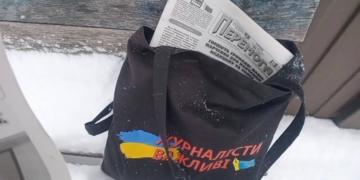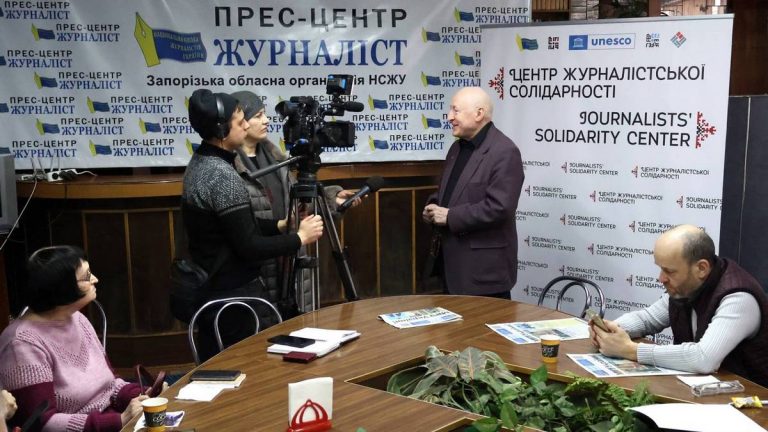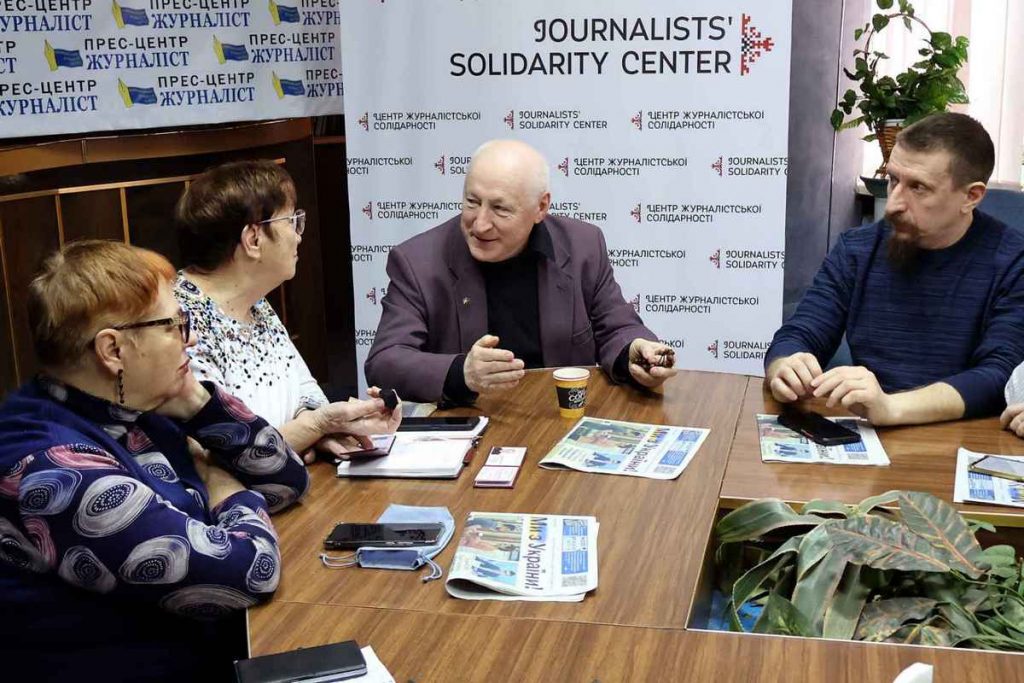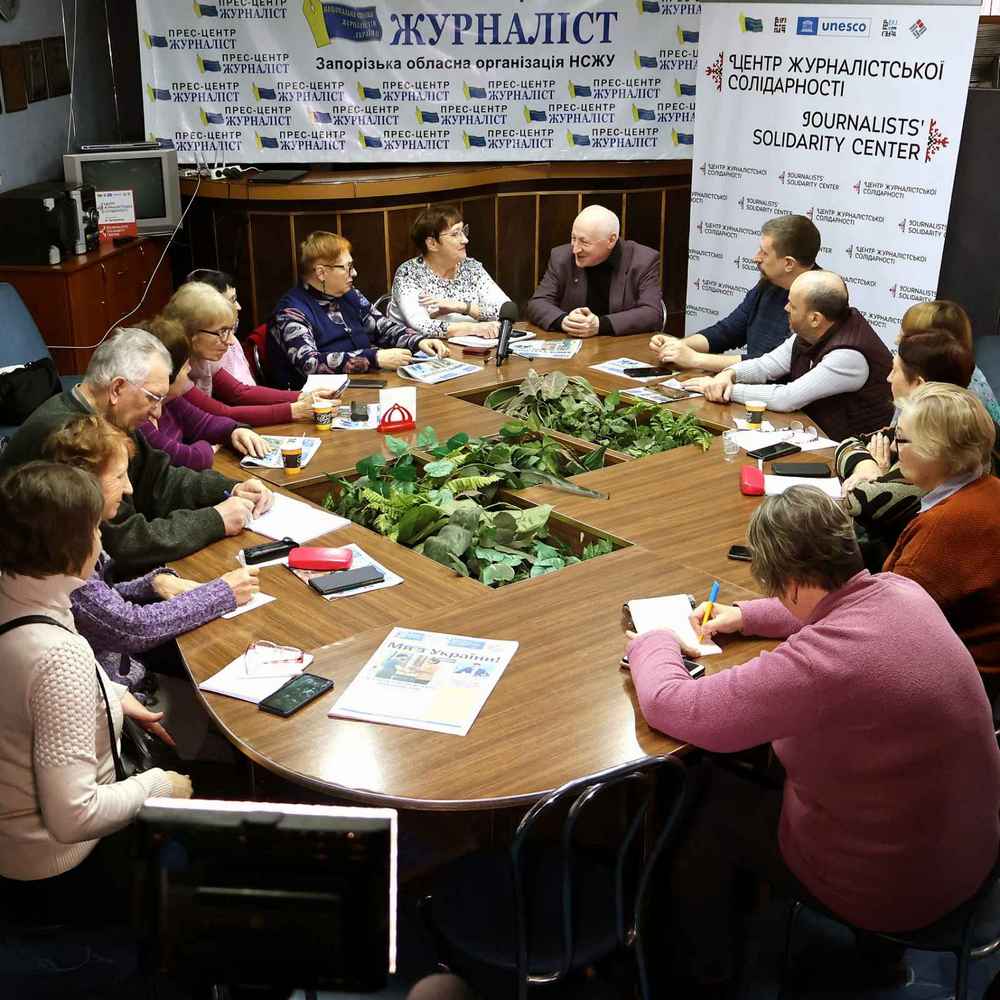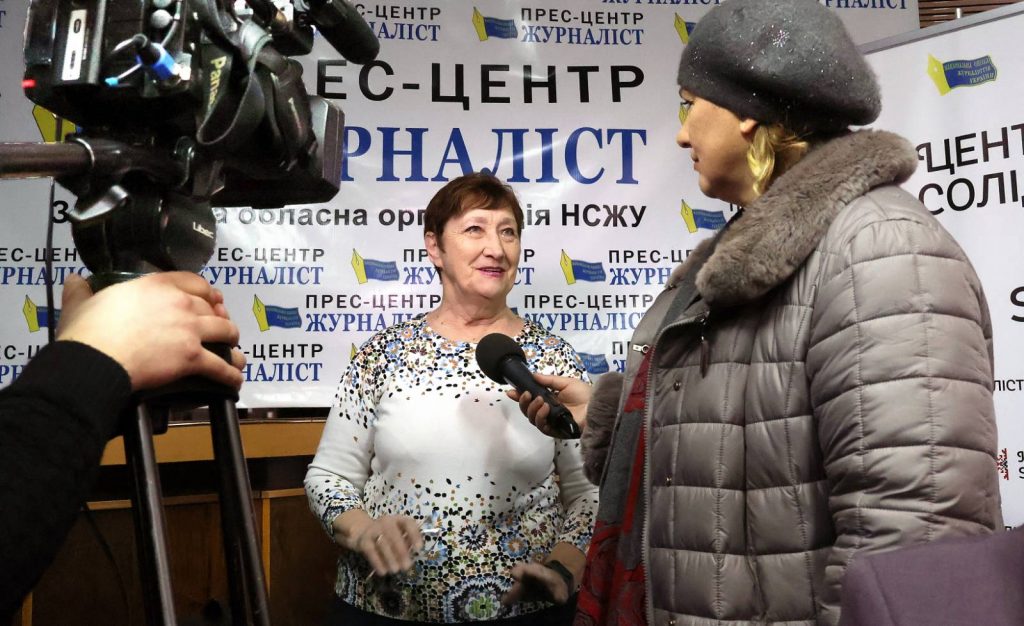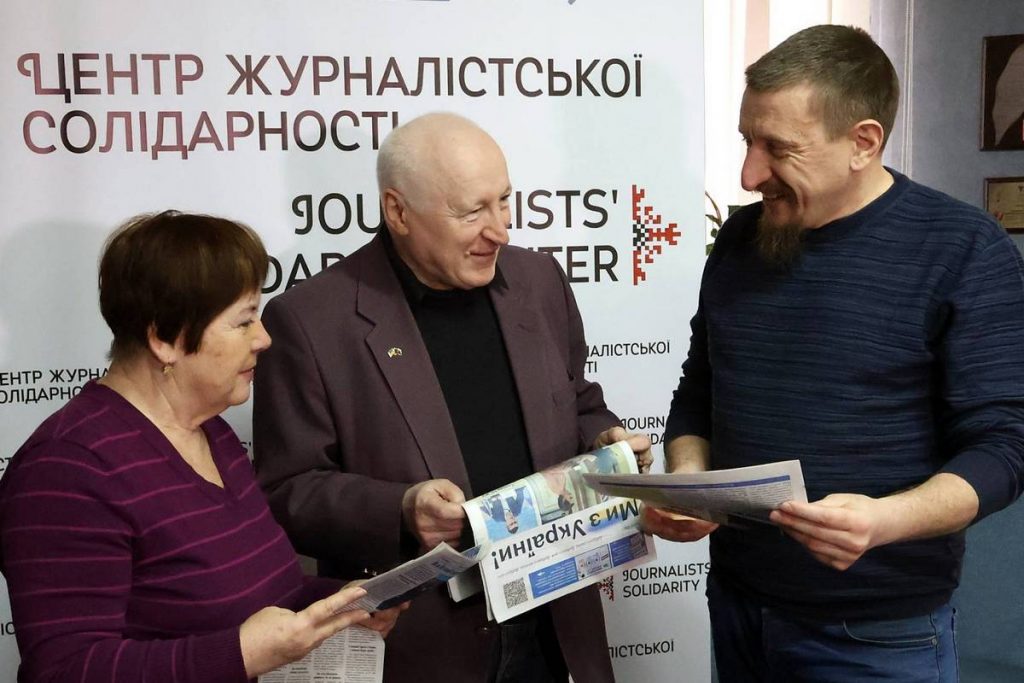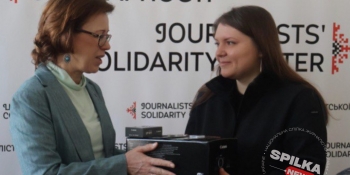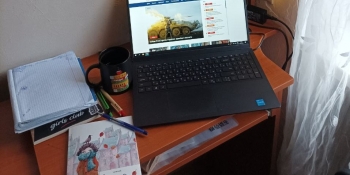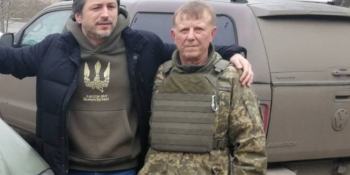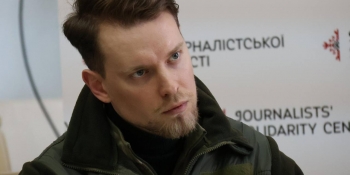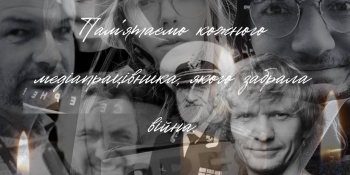Effective information policy during the war, countering fakes, the role and mission of journalists in this important field were discussed at a training session at the NUJU’s Journalists’ Solidarity Center in Zaporizhzhia. The event was attended not only by displaced journalists, who became active subjects of this policy from the first days of the war, but also by local media.
“The topic of conversation is extremely important. After all, the information policy during the war is formed not only by the government, but in many ways by journalists themselves. It is up to us what people see, hear or read about the war and how it affects them. Therefore, the information that we bring to society must be objective, impartial, interesting, insightful for both the mind and the soul,” noted displaced journalist from Dniprorudne Olena Mashtaliar, who was assisted by the Journalists’ Solidarity Center in getting a job at the city’s MTM TV channel.
By the way, not only did she take part in the training, but also prepared a TV report from it.
The main requirements for journalists’ works about the war are quite clear and balanced. When preparing publications, use only reliable, proven sources of information, do not chase sensations, rushing to publish information as soon as possible at any cost. So, it is better, as they say, to measure seven times. After all, it is necessary to clearly understand what information cannot be published, so as not to harm the Armed Forces of Ukraine and ordinary citizens, so as not to cause panic or, on the contrary, excessive euphoria. Every word in such information has great weight, it should touch not only the mind, but also the soul, give people strength, instill faith in victory, noted the speaker of the event, a well-known media trainer, political analyst, professor and, by the way, a member of the NUJU (at one time he started as a journalist in one of the leading Zaporizhzhia newspapers, and now has many publications and own books) Oleksandr Narbut.
“At the same time, you and I must remember that hiding information important to people, silencing so-called ‘inconvenient’ facts is no less harmful. That is why we emphasize that, in addition to the undeniable principle of objectivity, a journalist must definitely adhere to ethical norms, tact in covering painful and sensitive topics,” he emphasized.
During the lively and fruitful discussion, the journalists also pointed out shortcomings in the information policy of the local authorities. In particular, there is not always constructive cooperation with journalists, the denial of information important to people or unreasonably long coordination of it, which, in turn, gives rise to all kinds of rumors and unnecessary tension in society, which is already suffering because of the war.
“Currently, the main task of journalists is to hold the information front with dignity, this is our vocation and our contribution to the victory. And how to do it effectively and with the greatest benefit, we learned at the training,” said Nataliya Kuzmenko, a co-coordinator of the NUJU’s Journalists’ Solidarity Center in Zaporizhzhia / Honored Journalist of Ukraine.
Please call the Journalists’ Solidarity Center in Zaporizhzhia 096 277 5352 (Nataliya Kuzmenko, Valentyna Manzhura, co-coordinators of the Zaporizhzhia JSC). Address: 152, Sobornyi Lane.
The Journalists’ Solidarity Centers are an initiative of the NUJU implemented with the support of the International and European Federations of Journalists, as well as UNESCO. The initiative is designed to help media representatives working in Ukraine during the war. The JSCs operate in Kyiv, Lviv, Ivano-Frankivsk, Chernivtsi, Zaporizhzhia, Dnipro and provide journalists with organizational, technical, legal, psychological and other types of assistance.
UNESCO is the United Nations Educational, Scientific and Cultural Organization. It contributes to peace and security by promoting international cooperation in education, sciences, culture, communication and information. UNESCO promotes knowledge sharing and the free flow of ideas to accelerate mutual understanding. It is the coordinator of the UN Action Plan on the Safety of Journalists and the Issue of Impunity, which aims to create a free and safe environment for journalists and media workers, thus strengthening peace, democracy, and sustainable development worldwide. UNESCO is working closely with its partner organizations in Ukraine to provide support to journalists on the ground.
The designations employed and the presentation of material throughout this digest do not imply the expression of any opinion whatsoever on the part of UNESCO concerning the legal status of any country, territory, city or area or its authorities, or concerning the delimitation of its frontiers or boundaries. The authors are responsible for the choice and the presentation of the facts contained in this digest and for the opinions expressed therein, which are not necessarily those of UNESCO and do not commit the Organization.
Valentyna Bystrova
PHOTO: Serhii Bizhko





